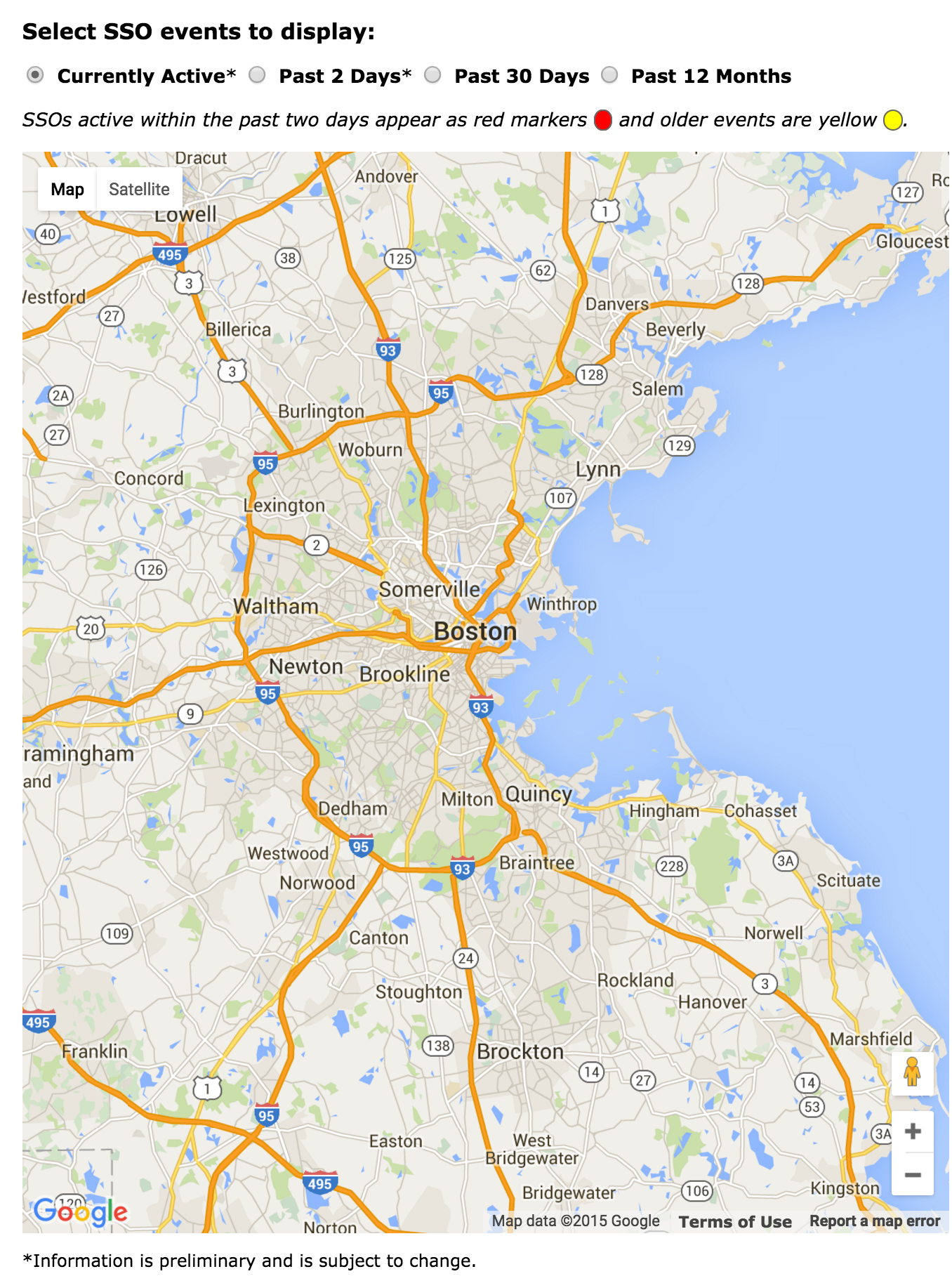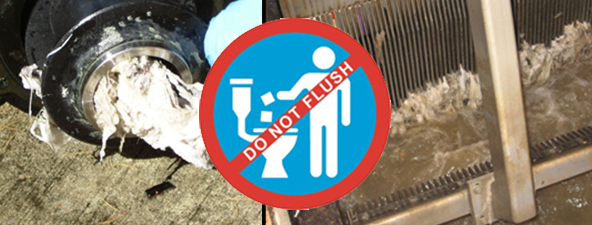| Home |
| About MWRA |
| Water System |
| Sewer System |
| Harbor and Bay |
| School Program |
| Doing Business with MWRA |
| Contact MWRA |
|
A Sanitary Sewer Overflows (SSO) is an unintentional discharge of wastewater to the environment prior to reaching a treatment facility. SSOs occur infrequently, when the capacity of the sewer system is exceeded—usually due to extreme conditions such as heavy rainfall or an obstruction or break in sewer lines. During such events, flow may be discharged to local receiving waters, without treatment, as a last resort to reduce the risk of sewage backing up into homes and businesses.
Public Health Impacts of SSOs
Public health officials recommend avoiding contact with SSO discharges in receiving waters for up to 48 hours after the discharge has ended, as there may be increased risks due to exposure to potential disease-causing organisms and pollutants.
Untreated sewage overflows into basements can cause property damage and threaten public health; refer to the following links for additional information on cleanup and repair:
DEP's Home Care Gude on Flooding and Sewage Backups
Cleanup Procedures After a Sewer Backup, from the Boston Water and Sewer Commission
FEMA and Red Cross Guide on Flooded Property Hazards and Repair
Can SSOs be prevented?
SSOs have several causes, including sewer blockages, line breaks, or when the sewer system is overloaded. Much of metropolitan Boston has a combined sewer system, where stormwater enters the sewer, reducing system capacity, particularly in extreme weather events. When stormwater and groundwater overwhelm the sewer system, an SSO can result.
The toilet is not a trash can. SSOs can be caused by improper disposal of grease or rags that can block sewer lines. Never pour grease down sink drains or into toilets, and never put solids into grease traps or interceptors.
|
Despite their name, “flushable” wipes do not degrade in the sewer system and can cause clogs in sewer lines. These should be disposed of in the trash, not flushed down the toilet. These include bathroom wipes, baby wipes, and disinfecting wipes.
Homeowners can also take action to reduce unnecessary stormwater entering the sewer system—including ensuring that their downspouts and sump pumps do not discharge to sewer drains.
What you can do to reduce or prevent SSOs
What does MWRA do when an SSO occurs?
MWRA is required to report all overflows to the Massachusetts Department of Environmental Protection and the community Public Health Department in which the event occurred.
MWRA is committed to working with member communities to increase sewer capacity during heavy storms, by providing nearly $500 million in grants and loans to reduce infiltration and inflow to the sewer system.
For more information about recent SSO events in the Boston area, visit these links:
Boston Water and Sewer Commission (BWSC) information about SSOs
Related Information
How the MWRA Sewer System Works
Don't Flush Wipes image courtesy NACWA
Updated May 5, 2022

